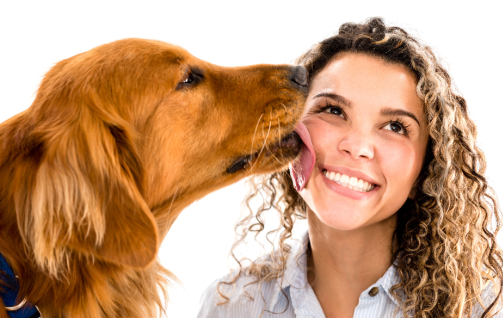Are Dog Mouths Cleaner Than Humans?
Ever since I developed an interest in dogs and their health, one question that always intrigued me is, “Are dog mouths cleaner than humans?” It’s a common myth I’m sure you’ve heard, but let’s delve into it a little deeper.
Introduction to the Myth
The saying that a dog’s mouth is cleaner than a human’s often leaves me perplexed. After all, dogs are notorious for their less-than-discerning dining habits, aren’t they? So, what’s the truth behind this claim?
Understanding the Canine Mouth
Before we can make a fair comparison, we first need to understand what’s going on inside our canine friends’ mouths.
Bacteria in a Dog’s Mouth
Like us humans, dogs also have a lot of bacteria living in their mouths – about 600 different types, in fact. But here’s the catch – most of these bacteria are specific to dogs.
Dog’s Oral Health Habits
Let’s face it; dogs aren’t known for their refined dining habits. Chewing on dirty toys, licking various objects, and even their own bodies – such habits contribute to the bacteria in their mouths.
The Human Mouth
Now, let’s shift our focus to humans.
Bacteria in a Human’s Mouth
Humans have about 600-700 different types of bacteria in their mouths. Some are harmful, while others are beneficial and help in digestion and protecting our oral cavity.
Human Oral Health Habits
Unlike dogs, humans generally follow a set of oral hygiene practices such as brushing, flossing, and using mouthwash, which helps keep the number of harmful bacteria in check.
Comparing the Two: Dog Mouths vs Human Mouths
Now that we have a basic understanding of both, let’s make the comparison.
Type of Bacteria
While both dogs and humans have a similar number of bacteria types, they mostly host different species. Therefore, it’s like comparing apples and oranges.
Quantity of Bacteria
While dogs may have fewer harmful bacteria due to their oral habits and enzymes in their saliva, they often have a higher total bacterial count.
Risks of Germs and Health
While it’s rare, some bacteria in dogs’ mouths can pose health risks to humans, especially if the dog licks an open wound or a person with a weakened immune system.
Helpful Suggestions
Maintaining good oral health, for both dogs and humans, is crucial.
How to Improve a Dog’s Oral Health
Regular teeth cleanings, providing dental treats, and routine vet check-ups can go a long way in ensuring your dog’s oral health.
Conclusion
So, are dog mouths cleaner than humans? Not really. The bacteria in dog and human mouths are different and can’t be compared directly. However, maintaining good oral hygiene is essential for both dogs and humans to prevent potential health issues.
FAQs
- What type of bacteria are found in a dog’s mouth? Most bacteria in a dog’s mouth are specific to dogs and harmless to humans, but some can cause diseases if they enter the human body through an open wound.
- Can a dog’s lick cause infections? While it’s rare, a dog’s lick can potentially cause infections in humans, especially if the human has an open wound or a weakened immune system.
- What type of bacteria are found in a human’s mouth? Humans’ mouths host both harmful and beneficial bacteria. Some can cause oral diseases like gum disease and tooth decay, while others aid digestion and protect the oral cavity.
- How can I improve my dog’s oral health? Regular teeth cleanings, providing dental treats, and routine vet check-ups can help maintain your dog’s oral health.
- How can I improve my oral health? Regular brushing, flossing, using mouthwash, and routine dental check-ups are key to maintaining good oral health.






Comments are closed.